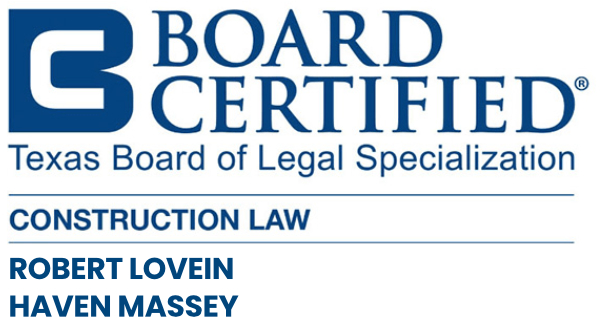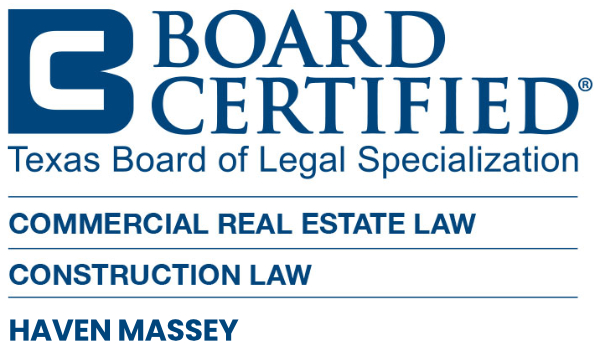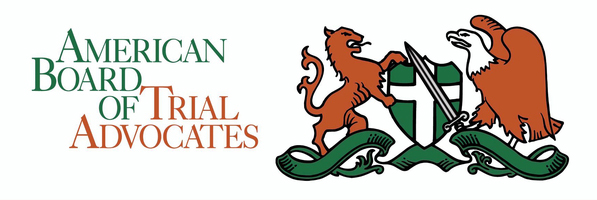The Texas Board of Legal Specialization has certified approximately 150 Texas lawyers as Board Certified in Construction Law. Lovein Ribman’s construction law department is overseen by two of those Board Certified lawyers. We represent every trade in the industry, from earthwork contractors, concrete contractors, HVAC contractors, steel fabricators, masonry suppliers and installers, electricians, structural repair contractors, plumbers, truss manufacturers, roofers, painters, commercial glass fabricators and installers, fire suppression contractors, and so on . . . We counsel and represent property owners, architects, engineers, developers, sureties, general contractors, subcontractors, and suppliers with every type of legal issue encountered on commercial, industrial, residential and public construction projects or through running a construction-related business. Our construction attorneys have been tried and tested, and are experienced in all aspects of construction law, to include enforcing payment through the mechanics lien and bond claim process; foreclosure actions; defending and/or prosecuting design claims, defect claims, and delay damage claims; and with drafting, reviewing, and modifying all types of residential and commercial contracts. We understand your industry. We listen to your needs. We will add value to your company.
We Know the Performance and Payment Bond Claim Process!
We have assisted thousands of property owners, contractors, subcontractors, and suppliers with prosecuting and defending claims against private and public performance and payment bonds. If you are a property owner who needs to assert a claim against a performance bond or a subcontractor/supplier/laborer who needs to assert a private or public payment bond claim, contact us for a no obligation consultation by calling (888) 368-2483 or by submitting the Contact Form. Read below to learn more about the private and public bond claim process and the statutory deadlines.
Private Project Performance and Payment Bond Claims
On large scale privately owned projects, it is not uncommon for the property owner (the “Obligee”) to require the prime contractor (the “Principal”) to purchase a Performance and Payment Bond from a surety. The Performance Bond is intended to guaranty the prime contractor’s performance. When the prime contractor is unable to fulfill its contractual obligations because of delayed performance, severe construction defects, an inability to complete the work, or bankruptcy, then the property owner can assert a claim against the performance bond and demand that the surety fulfill the contractor’s performance. Private performance bonds are contractual agreements and are not governed by any Texas statute. As such, the property owner must carefully examine the performance bond to determine the proper steps for asserting a claim against the bond, which typically include: (1) notice of default by the prime contractor; (2) termination for cause of the prime contractor, and (3) tender of the remaining contract balance to the surety. In response to a proper demand, the surety may satisfy its obligations under the bond by providing additional financing so the contractor can complete the work, retaining a replacement contractor to complete the work, or allow the property owner to retain a replacement contractor and pay for the cost overruns. A property owner should seek the advice of a construction lawyer before terminating its contractor and asserting a claim against the performance bond to ensure the proper steps are taken to invoke the performance bond.
A private payment bond is intended to guaranty payment of any unpaid subcontractors/suppliers and protects the property owner’s property from subcontractor/supplier mechanic’s liens. The payment bond must be: (1) in the penal sum of the prime contract amount, (2) be in favor or the property owner, (3) endorsed by the surety, property owner, and prime contractor, (4) be conditioned upon prompt payment of all claims, and (5) the surety contact information. A valid payment bond must be recorded in the real property records, along with the prime contract, in order to bar any mechanic’s lien filed against the property. An unpaid subcontractor/supplier can assert a claim against the private payment bond by timely serving all pre-lien notices and recording a lien against the property or by timely asserting a claim directly against the private bond. Typically, a private payment bond claim must be brought within the same deadlines for serving a pre-lien notice and recording a mechanic’s lien against the property.
Public Project Payment Bond Claims
You cannot file a mechanic’s lien on a publicly owned property, such as schools, libraries, highways, parks, and government buildings. On public projects where the prime contract (the contract between the public entity and the prime contractor) is over $25,000.00, the prime contractor is required to obtain a payment bond from a reputable surety to protect unpaid subcontractors, suppliers, and laborers. As a substitute to a mechanic’s lien, unpaid subcontractors, material suppliers, and laborers have the right to assert a claim against the prime contractor’s payment bond. The process is referred to as making a “payment bond claim.” A payment bond creates a new and additional source of funds to potentially recover payment of the debt. For example, in the event of nonpayment, your first line of recovery would typically be a breach of contract claim against the party who hired you. However, when you properly initiate a payment bond claim, you can now look to the surety to pay the debt if the contractor who hired you does not. The payment bond claim process is also an excellent opportunity to gain leverage in negotiating a settlement. For example, upon receipt of your payment bond claim, the surety will immediately notify the prime contractor and begin investigating the claim. If the contractor cannot raise a legitimate defense to the claim, then the surety will typically pressure the contractor to pay the claim or pay it itself and look to the contractor for reimbursement. When a payment bond claim is prepared in the form of payment demand, the process can be used to educate all of the involved parties of your legal rights and the steps that you intend to take to enforce payment in the event the claim is not immediately paid.
One of the most common mistakes is to assume that you will be paid for your work. The better approach is to assume that you will not be paid and to make it a practice to obtain the payment bond information at the outset of the project and timely serve all bond claim notices well before your deadlines.
First-Tier Subcontractors/Suppliers (those hired by the prime contractor): If you were hired by the project prime contractor, then you must serve the surety and the prime contractor with the Third Month Notice of Claim and Sworn Statement of Account by no later than the 15th day of the third month, after each and every month that you provide labor and/or materials to the project and have not been paid.
Second-Tier Subcontractors/Suppliers (those hired by a subcontractor): If you were hired by a subcontractor, then you must serve two notices (unless combined into one) to make a claim against the payment bond. First, you must serve the Second Month Notice of Claim on the prime contractor (only) by the 15th day of the second month, for each and every month that you provide labor and materials to the project and have not been paid. Additionally, like a First-Tier Subcontractor, you must also serve the Third Month Notice of Claim and Sworn Statement of Account on the surety and the prime contractor by the 15th day of the third month, for each and every month that you provide labor and/or materials to the Project and have not been paid.
You can file a lawsuit against the surety and the prime contractor to enforce the payment bond claim any time after the passage of 61 days from the date that you mailed notice of your claim and up to one year from the date that you timely made the claim. If the Lawsuit is not filed within the one year time period, it is forever waived.
















